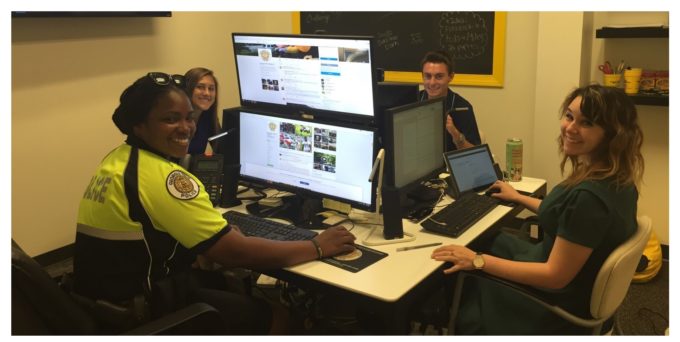Social Media Quicktip: Constable Scott Mills gives advice on why social media benefits your department
The Social Media Quicktips from The SMILE Conference are brought to you by LawOfficer.com
 Editor’s note: The SMILE (Social Media, the Internet and Law Enforcement) Conference provides officers with all the technical hands-on skills and the practical knowledge to utilize social media platforms for public outreach, crime prevention and forensics. The conference is a great opportunity for those involved in social media efforts to share suggestions and stories on this ever-changing topic. Below you will find social media tips from one of the speakers at the conference.
Editor’s note: The SMILE (Social Media, the Internet and Law Enforcement) Conference provides officers with all the technical hands-on skills and the practical knowledge to utilize social media platforms for public outreach, crime prevention and forensics. The conference is a great opportunity for those involved in social media efforts to share suggestions and stories on this ever-changing topic. Below you will find social media tips from one of the speakers at the conference.
Local and global community success and safety has an unprecedented opportunity because of the ever-growing use of social media tools and the Internet by the police and law enforcement community. Opportunities for community engagement through relationships and technology to help stop, solve and prevent crime is made easier and more effective when police officers and community stakeholders collaborate. Community-led programs, like Crime Stoppers, are able to reach more people faster and provide a way for citizens to collaborate with public safety professionals like never before.
Social media tools allow positive relationships between police and community (much of what was never seen or celebrated before) to be shared to a local and global audience. By adapting a purpose, and a process, there’s payoff and potential for anything police become involved with. Whether it be a missing or abducted child, robbery, sexual assault, break and enter, a homicide or just being there for the community celebrating success, social media tools are an essential part of modern day policing.
Quick Tips
1. Post to social media often and be you! Yes, many cops are community volunteers, parents and valued family members too. Wear your hats with purpose and process for community safety in social media.
2. Think outside the box! If you can’t reach them, you can’t teach them!
3. Have a conversation about many topics, not just policing. When it’s time to put on the cop hat, you’ll have a larger and more receptive audience!
4. Work as a team. Official social media for law enforcement is a 24/7 job that is much bigger than one person or one unit! It’s for everyone in the organization from the chief of police to the administrative assistant. Yes, this includes civilian employees! Let the people and the cops speak!
Constable Scott Mills has been employed as a police officer from 1990-2002 with the Peel Regional Police (Brampton/Mississauga, Ontario, Canada) and from 2002-present with the Toronto Police Service. Constable Mills’ current assignment is the Social Media Officer for the Toronto Police Service. Previously, he served as Community Youth Officer for the Toronto Police Crime Stoppers program where his mandate was to build healthy relationships between youth, the community and police. Constable Mills is also the social media technical advisor to Crime Stoppers International.



